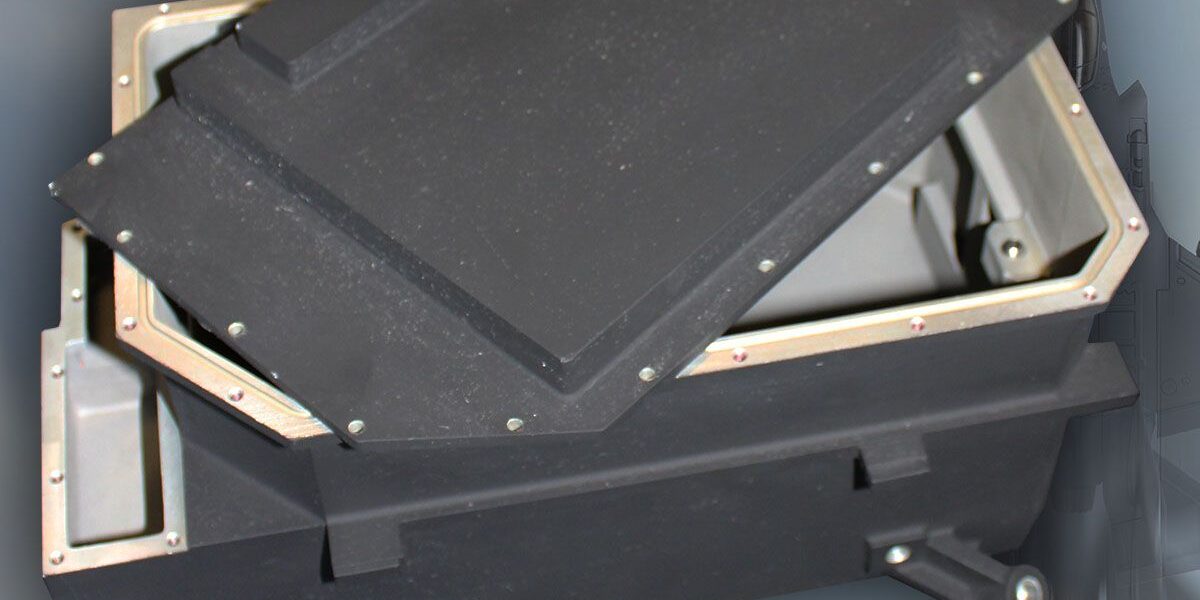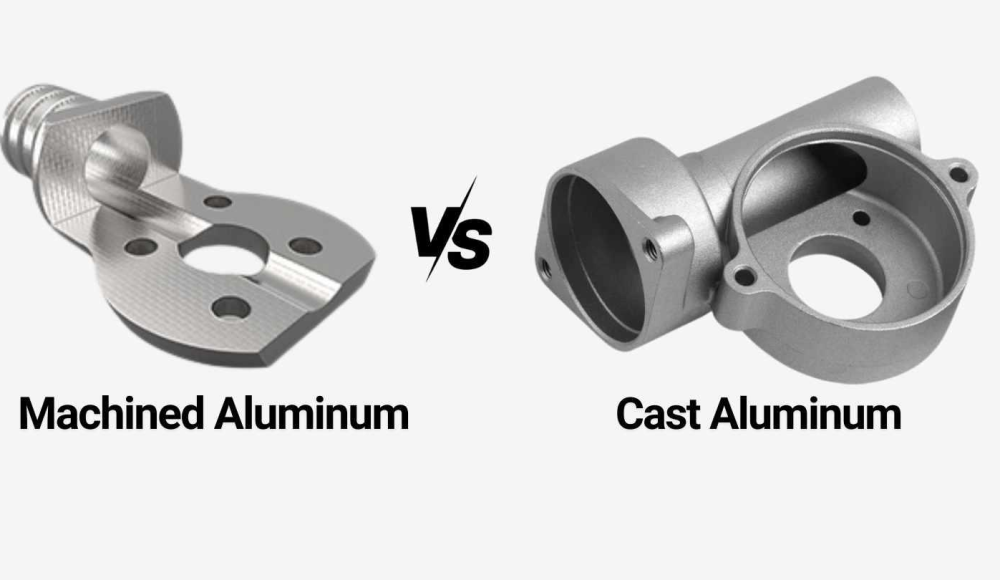How Light Weight Aluminum Foundries Contribute to Numerous Industries: A Detailed Summary
Light weight aluminum factories serve as essential providers throughout several fields, consisting of auto, aerospace, building, and electronic devices. They generate components that are not just light-weight yet also long lasting, boosting the performance of different products. With sophisticated casting strategies and a dedication to sustainability, these shops are adapting to fulfill developing sector demands. As they introduce, the influence of light weight aluminum castings on different applications increases important inquiries regarding the future of production. What exists in advance for this crucial market?
The Role of Aluminum Foundries in the Automotive Industry
As the automotive sector increasingly welcomes light-weight products to improve gas performance and efficiency, aluminum shops play an essential duty in this advancement. These centers specialize in the manufacturing of aluminum spreadings, which are important elements in modern-day vehicles. By supplying high-strength, light-weight components, aluminum foundries allow manufacturers to minimize the overall weight of cars, inevitably bring about enhanced gas economic climate and decreased exhausts.
Light weight aluminum's resistance to rust even more boosts lorry longevity, making it an eye-catching option for car manufacturers. Factories make use of advanced techniques such as die spreading and sand casting to produce specific and elaborate elements, ensuring that they satisfy rigorous market criteria. Furthermore, the ability to recycle aluminum efficiently adds to a more sustainable manufacturing procedure. As the auto market remains to innovate, light weight aluminum shops will certainly remain critical in providing the materials essential for the following generation of vehicles, sustaining both performance and environmental goals.

Aerospace Applications of Aluminum Castings
Aluminum castings are indispensable to the aerospace sector, using a mix of light-weight stamina and durability that is vital for aircraft efficiency. These castings are utilized in different parts, such as engine components, structural frames, and touchdown gear, where weight decrease is vital for fuel effectiveness and overall security. The versatility of light weight aluminum permits for complex geometries that improve wind resistant efficiency while maintaining architectural integrity.
In addition, advancements in casting technologies have actually improved the precision and surface area coating of light weight aluminum parts, decreasing the requirement for substantial post-processing. This performance not just accelerates production timelines yet likewise decreases expenses, making light weight aluminum an attractive choice for producers. The corrosion resistance of aluminum warranties durability and dependability in severe operating atmospheres, additionally establishing its role in aerospace applications. As the industry develops, light weight aluminum castings remain to be a crucial material, driving innovation and sustaining the development of next-generation aircraft.
Building Market Developments Via Light Weight Aluminum
The construction sector has significantly embraced light weight aluminum because of its light-weight buildings and flexibility, paralleling its successful applications in aerospace. Innovations in light weight aluminum layout have actually brought about stronger, a lot more reliable frameworks, allowing architects and builders to discover new possibilities. The material's resistance to corrosion and low upkeep requires make it specifically appealing for both property and commercial jobs.
Light weight aluminum's convenience assists in the production of elaborate designs, enabling for aesthetic enhancements that were formerly tough with standard materials. Prefabrication methods have actually likewise developed, utilizing aluminum to reduce building and construction time and prices substantially. In addition, the power performance of aluminum systems-- such as window structures and roof covering-- adds to lasting structure practices, aligning with modern-day ecological requirements. As the building and construction sector continues to accept these advancements, aluminum's role is anticipated to broaden, driving more advancement and adding to the advancement of resilient facilities.
Electronics and the Demand for Lightweight Light Weight Aluminum Parts
With the rapid development of innovation, the demand for light-weight aluminum parts in the electronics sector has actually risen. As gadgets become much more mobile and compact, suppliers seek materials that supply both sturdiness and weight reduction. Aluminum, with its superb strength-to-weight proportion, has actually arised as a preferred choice for elements such as cases, warm sinks, and architectural assistances.
The usage of light weight aluminum not only enhances item performance however also contributes to energy effectiveness, as lighter gadgets require much less power throughout procedure. Additionally, aluminum's excellent conductivity makes it ideal for electronic applications, making certain reliable warmth dissipation and decreasing the danger of overheating.
As customer choices shift in the direction of sleek and light-weight gadgets, light weight aluminum factories play a necessary duty in satisfying the progressing demands of the electronic devices sector (Precision aluminum casting). Their ability to create top notch and precise aluminum parts sustains development, making it possible for manufacturers to push the boundaries of style and capability
Sustainable Practices in Aluminum Foundries
As the electronic devices sector significantly prioritizes sustainability, light weight aluminum foundries are adjusting their techniques to align with these environmental goals. Several shops are applying reusing programs that reclaim light weight aluminum scrap, considerably reducing the requirement for basic materials and minimizing waste. By making use of energy-efficient innovations, these facilities are lowering their carbon impact; for instance, utilizing electric heaters as opposed to standard gas-fired ones can cause considerable energy financial savings.
In addition, aluminum foundries are purchasing water conservation procedures, such as closed-loop systems that reuse water made use of in cooling processes. These practices not only lower water consumption however additionally reduce the ecological impact connected with wastewater discharge. Numerous foundries are exploring sustainable energy sources, such as solar and wind you can try here power, to fulfill their power requires sustainably. Via these campaigns, light weight aluminum shops exhibit a dedication to environmental stewardship while continuing to fulfill the needs of the electronic devices market.
Future Fads in Light Weight Aluminum Factory Technologies
Emerging modern technologies are positioned to transform light weight aluminum factories, boosting effectiveness and product top quality while advancing sustainability efforts. Developments such as fabricated knowledge and equipment discovering are anticipated to maximize production processes by anticipating tools failures and boosting resource allocation. The assimilation of sophisticated robotics will streamline operations, minimizing labor prices and minimizing human error.
Additive manufacturing, or 3D printing, is likewise getting traction, enabling the production of intricate geometries that were formerly unattainable with standard approaches. This change can lead to significant product financial savings and lowered waste. In addition, smart foundries utilizing IoT (Internet of Things) modern technologies will certainly make it possible for real-time surveillance and information analysis, fostering proactive decision-making.
Lastly, the adoption of cleaner melting innovations and recycling strategies will even more reduce the environmental impact of light weight aluminum factories, making them much more lasting. Collectively, these fads signal a future where aluminum foundries can operate with higher performance and obligation.
Often Asked Inquiries
What Are the Ecological Influences of Aluminum Foundries?

Just How Do Foundries Make Certain Quality Assurance in Aluminum Spreading?
Shops guarantee top quality control in light weight aluminum casting by implementing strenuous assessment procedures, using advanced modern technology, carrying out regular product testing, and sticking to industry standards, consequently keeping consistency and dependability in their ended up products. Aluminum Foundry.
What Is the Ordinary Lifespan of Aluminum Cast Parts?
The ordinary life expectancy of light weight aluminum actors parts normally varies from 10 to half a century, depending upon factors such as ecological problems, use, and maintenance. Proper care can substantially enhance their sturdiness and efficiency with time.
How Are Aluminum Alloys Selected for Particular Applications?
Aluminum alloys are picked based on elements such as toughness, corrosion resistance, weight, and thermal conductivity. Designers review the particular needs of applications to determine one of the most appropriate alloy for ideal performance and resilience.
What Are the Safety And Security Laws for Aluminum Foundry Employees?
Safety guidelines for aluminum foundry employees consist of personal safety tools requireds, ventilation requirements, exposure restrictions to harmful products, and methods for handling liquified metal. Compliance warranties employee safety and this security and decreases wellness dangers connected with shop operations.
As the automotive market significantly embraces lightweight materials to boost gas efficiency and performance, aluminum foundries play a vital function in this development. As customer choices shift towards sleek and light-weight devices, aluminum foundries play a crucial function in meeting the advancing demands of the electronic find here devices market. As the electronics sector significantly focuses on sustainability, aluminum foundries are adjusting their techniques to line up with these environmental goals. Many shops are executing recycling programs that recover light weight aluminum scrap, substantially decreasing the demand for raw materials and reducing waste. Safety laws for aluminum factory employees include personal safety devices requireds, air flow demands, exposure restrictions to harmful materials, and protocols for managing molten steel.